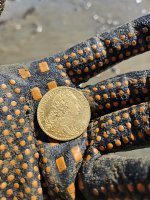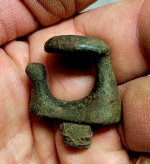- Jan 1, 2013
- 2,653
- 5,418
- Detector(s) used
- Tesoro Vaquero, Whites MXT, Vsat, GMT, 5900Di Pro, Minelab GPX 5000, GPXtreme, 2200SD, Excalibur 1000!
- Primary Interest:
- All Treasure Hunting
Forest Service Employees for Environmental Ethics,
I had forgotten about the fs greenie anti-mining page and visited it today to see what was happening and thought I would share - FSEEE
I had forgotten about the fs greenie anti-mining page and visited it today to see what was happening and thought I would share - FSEEE
Upvote
0



 John
John

